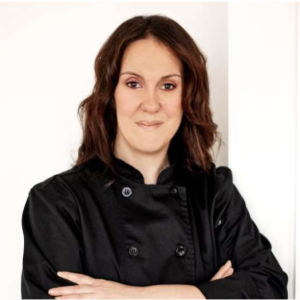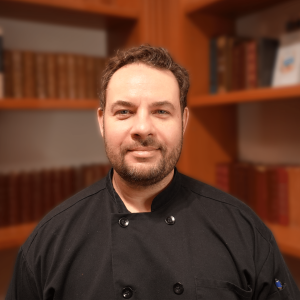






Simcoe Addiction and Mental Health
Verified Center
This provider's information has been quality-checked by Recovery.com's Research Team for accuracy and completeness, including center verification through appropriate third-party organizations.
Treatment Focus
This center treats substance use disorders and mental health conditions. You'll receive individualized care catered to your unique situation and diagnosis, learn practical skills for recovery, and make new connections in a restorative environment.
Primary Level of Care
Offering intensive care with 24/7 monitoring, residential treatment is typically 30 days and can cover multiple levels of care. Length can range from 14 to 90 days typically.
Treatment Focus
This center treats substance use disorders and mental health conditions. You'll receive individualized care catered to your unique situation and diagnosis, learn practical skills for recovery, and make new connections in a restorative environment.
Primary Level of Care
Offering intensive care with 24/7 monitoring, residential treatment is typically 30 days and can cover multiple levels of care. Length can range from 14 to 90 days typically.
Provider's Policy
We provide a detailed receipt to submit to insurance companies that cover non-provincially funded inpatient treatment. However, it is the responsibility of the individual or payor to verify with their insurance provider whether our services are covered under their policy and to what extent
Simcoe Addiction and Mental Health
Simcoe Addiction and Mental Health
About Simcoe Addiction and Mental Health
In the heart of Ontario, Simcoe Addiction & Mental Health Treatment Centre offers hope and healing for clients seeking a fresh start. Their facility is dedicated to supporting individuals on their journey toward a healthier, more fulfilling life. Whether clients are struggling with drug addiction, alcohol dependency, mental health challenges, or behavioral addictions such as gambling, internet, porn/sex, or video game addiction, Simcoe's expert team can provide effective care. Through detox and residential treatment, Simcoe addresses both the psychological and physical aspects of the client’s primary concern.
Rediscover Joy and Fulfillment in Recovery
Simcoe’s number one goal for all clients is to meet them where they are at and provide guidance and support along the way. They believe that individuals need a break after years of trauma and pain. Not only do clients need to do the hard work of looking within themselves to address the root causes of their challenges, they also need to rest and relearn how to experience fulfillment again. Having fun is a crucial part of treatment at Simcoe, because it retrains the brain to experience pleasure in a more organic way, free from pain and consequences. To facilitate reflection, Simcoe provides 4 weekly individual therapy sessions and 4 daily group therapy sessions. And because there is no wrong way to be physically active, Simcoe gives clients the opportunity to break a sweat, float in the pool, or just simply breathe and be present.
Build Healthy Routines through Recreation
With a unique blend of luxury and rustic charm, Simcoe provides an ideal environment for self-discovery. Clients can begin their day with a peaceful walk around the beautiful pond or find solace by the waterfall with a book and a warm cup of coffee. For those seeking physical rejuvenation, the indoor swimming pool, basketball courts, and tennis court offer opportunities to build healthy, new routines. Their on-site gym, sauna, and yoga sessions give clients a path to peace and mindfulness. And at the end of the day, clients can gather around the fire pit for meaningful conversations to round out the day.
Receive Free Lifetime Aftercare
Recovery is a lifelong commitment, so Simcoe offers impactful aftercare services to empower clients every step of the way. With access to free lifetime aftercare, Simcoe’s aftercare program provides a vital bridge between structured treatment and daily life. Through support groups and one-on-one calls, clients can manage stress and their emotions, while leaning into a supportive community.

Highlights from the Center
Highlights
These highlights are provided by and paid for by the center.
Holistic Approach
Pool
Addiction Recovery
Center Overview
Treatment Focus
This center treats substance use disorders and mental health conditions. You'll receive individualized care catered to your unique situation and diagnosis, learn practical skills for recovery, and make new connections in a restorative environment.
Insurance Accepted
Cash Pay Rates
Estimated Cash Pay Rate
Center pricing can vary based on program and length of stay. Contact the center for more information. Recovery.com strives for price transparency so you can make an informed decision.
Meet Your Care Team

Raymond Moore
Clinical Director
ICADC, ICCS

Adam Kostiw
Clinical Manager
Hons. B.A, Psych., M.Div., RP EMDR Certified CSAT Candidate

Gurman Randhawa
Clinical Therapist
Registered Psychotherapist

Angad Sachdev
Addictions & Mental Health Counsellor
Registered Psychotherapist

Nicole Fortier
Chef

Carmen Lippa
Chef




Levels of Care







Your Care Options
Specializations
Personality Disorders
Personality disorders destabilize the way a person thinks, feels, and behaves. If untreated, they can undermine relationships and lead to severe distress.
Alcohol
Using alcohol as a coping mechanism, or drinking excessively throughout the week, signals an alcohol use disorder.
Anxiety
Anxiety is a common mental health condition that can include excessive worry, panic attacks, physical tension, and increased blood pressure.
Co-Occurring Disorders
A person with multiple mental health diagnoses, such as addiction and depression, has co-occurring disorders also called dual diagnosis.
Cocaine
Cocaine is a stimulant with euphoric effects. Agitation, muscle ticks, psychosis, and heart issues are common symptoms of cocaine abuse.
Depression
Symptoms of depression may include fatigue, a sense of numbness, and loss of interest in activities. This condition can range from mild to severe.
Opioids
Opioids produce pain-relief and euphoria, which can lead to addiction. This class of drugs includes prescribed medication and the illegal drug heroin.
Post Traumatic Stress Disorder
PTSD is a long-term mental health issue caused by a disturbing event or events. Symptoms include anxiety, dissociation, flashbacks, and intrusive thoughts.
Who We Treat
Executives
Executive treatment programs typically directly support the needs of people who manage businesses and may provide flexible schedules and office space to allow work during treatment.
Young Adults
Emerging adults ages 18-25 receive treatment catered to the unique challenges of early adulthood, like college, risky behaviors, and vocational struggles.
Men and Women
Men and women attend treatment for addiction in a co-ed setting, going to therapy groups together to share experiences, struggles, and successes.
Midlife Adults
For adults ages 40+, treatment shifts to focus on the unique challenges, blocks, and risk factors of their age group, and unites peers in a similar community.
Mild Disabilities
Adults with mild physical or intellectual disabilities receive treatment catered to their specific needs in a safe and clinically supportive environment.
Pregnant Women
Addiction and mental health treatment meets the clinical and psychological needs of pregnant women, ensuring they receive optimal care in all areas.
Professionals
Busy, high-ranking professionals get the personalized treatment they need with greater accommodations for work, privacy, and outside communication.
Approaches
Evidence-Based
A combination of scientifically rooted therapies and treatments make up evidence-based care, defined by their measured and proven results.
Medical
Medical addiction treatment uses approved medications to manage withdrawals and cravings, and to treat contributing mental health conditions.
Personalized Treatment
The specific needs, histories, and conditions of individual patients receive personalized, highly relevant care throughout their recovery journey.
Wellness
Wellness philosophies focus on the physical, mental, and spiritual wellness of each patient, helping them restore purpose with natural remedies.
Therapies
1-on-1 Counseling
Patient and therapist meet 1-on-1 to work through difficult emotions and behavioral challenges in a personal, private setting.
Art Therapy
Visual art invites patients to examine the emotions within their work, focusing on the process of creativity and its gentle therapeutic power.
Eye Movement Therapy (EMDR)
Lateral, guided eye movements help reduce the emotional reactions of retelling and reprocessing trauma, allowing intense feelings to dissipate.
Family Therapy
Family therapy addresses group dynamics within a family system, with a focus on improving communication and interrupting unhealthy relationship patterns.
Interpersonal Therapy
This brief and structured therapy addresses present relationships and improves overall communication at work, home, and other social settings.
Life Skills
Teaching life skills like cooking, cleaning, clear communication, and even basic math provides a strong foundation for continued recovery.
Medication-Assisted Treatment
Combined with behavioral therapy, prescribed medications can enhance treatment by relieving withdrawal symptoms and focus patients on their recovery.
Motivational Interviewing and Enhancement Therapy (MET)
This approach is based on idea that motivation to change comes from within. Providers use a conversational framework that may help you commit to recovery.
Conditions We Treat
Pornography Addiction
A person with a porn addiction is emotionally dependent on pornography to the point that it interferes with their daily life and relationships.
Schizophrenia
Schizophrenia is a serious mental health condition that causes hallucinations, delusions, and disordered thinking.
Grief and Loss
Grief is a natural reaction to loss, but severe grief can interfere with your ability to function. You can get treatment for this condition.
Personality Disorders
Personality disorders destabilize the way a person thinks, feels, and behaves. If untreated, they can undermine relationships and lead to severe distress.
ADHD, ADD
ADHD is a common mental health condition caused by dopamine imbalance. Common symptoms include inattention, hyperactivitiy, and impulsivity.
Anger
Although anger itself isn't a disorder, it can get out of hand. If this feeling interferes with your relationships and daily functioning, treatment can help.
Anxiety
Anxiety is a common mental health condition that can include excessive worry, panic attacks, physical tension, and increased blood pressure.
Bipolar
This mental health condition is characterized by extreme mood swings between depression, mania, and remission.
Substances We Treat
Alcohol
Using alcohol as a coping mechanism, or drinking excessively throughout the week, signals an alcohol use disorder.
Benzodiazepines
Benzodiazepines are prescribed to treat anxiety and sleep issues. They are highly habit forming, and their abuse can cause mood changes and poor judgement.
Chronic Relapse
Consistent relapse occurs repeatedly, after partial recovery from addiction. This condition requires long-term treatment.
Co-Occurring Disorders
A person with multiple mental health diagnoses, such as addiction and depression, has co-occurring disorders also called dual diagnosis.
Cocaine
Cocaine is a stimulant with euphoric effects. Agitation, muscle ticks, psychosis, and heart issues are common symptoms of cocaine abuse.
Drug Addiction
Drug addiction is the excessive and repetitive use of substances, despite harmful consequences to a person's life, health, and relationships.
Ecstasy
Ecstasy is a stimulant that causes intense euphoria and heightened awareness. Abuse of this drug can trigger depression, insomnia, and memory problems.
Heroin
Heroin is a highly addictive and illegal opioid. It can cause insomnia, collapsed veins, heart issues, and additional mental health issues.
Languages
Aftercare
Care Designed for Your Needs
Personal Amenities
Amenities
Special Considerations
Healthy Meals are provided
Great food meets great treatment, with providers serving healthy meals to restore nutrition, wellbeing, and health.
First Responders Program
Paramedics, police officers, firefighters, and others join in a specific First Responders program, usually focused on trauma, grief, and work-life balance.
Activities
Yoga
Yoga is both a physical and spiritual practice. It includes a flow of movement, breathing techniques, and meditation.
What people are saying
Treatment
4.5
Accommodations
4.5
Food & Nutrition
4.7
Value
4.3
Pros
- Beautiful Location (9)
- Supportive Aftercare (7)
- Fun Activities (7)
- Excellent & Effective Treatment Programming (6)
Sam
Treatment in 2024 • (30 days) • Reviewed 11/10/24
Former Client
•Barrie
Anonymous
Treatment in 2024 • (2 weeks) • Reviewed 02/06/25
Former Client
JML
Treatment in 2026 • (90 days) • Reviewed 02/16/26
Former Client
•Professional
•New Brunswick
Linda
Treatment in 2025 • (30 days) • Reviewed 04/20/25
Former Client
•Retired
•Ontario, Canada
Sofia
Treatment in 2024 • (45 days) • Reviewed 02/06/25
Loved One of a Former Client
•Ontario






